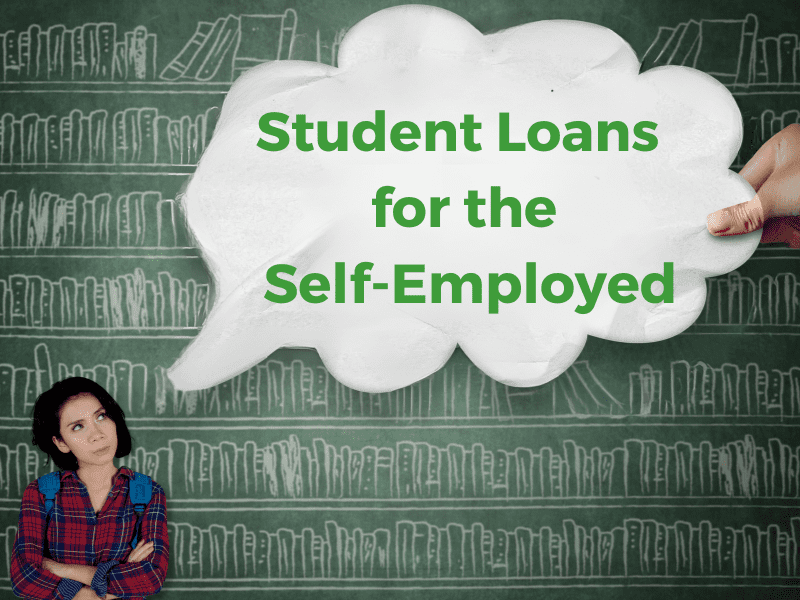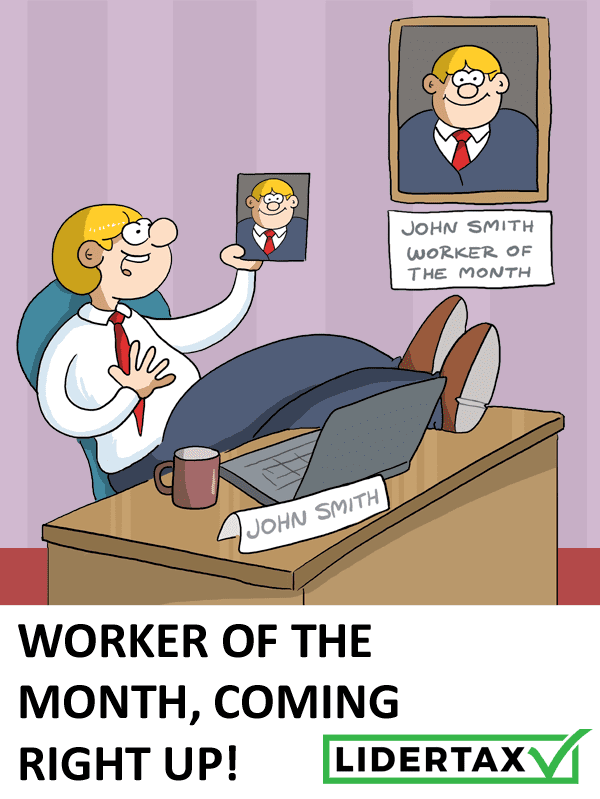
Have you ever wondered about how student loans work for the self-employed? As an ex student, there’s a good chance that you will have taken out a student loan, and this can seem like a great option at the time. However, you will have to begin repaying your student loan eventually (or at least if you earn enough to exceed the threshold).
As such, knowing about the key factors in this regard could help you ascertain when you’ll have to start paying. Fortunately, we’ve outlined some of the main things you’ll need to know to help.

How Do Student Loans Work for the Self-Employed?
Student loans aren’t free money. As such, they do need to be repaid – however, the terms are generally different to regular loans.
One of the main defining features of student loans is that you don’t begin repaying them until you’re earning enough. As such, if you’re only making a small wage and working 30 or 40 hours a week, you won’t need to worry at all about repaying your student loan through your self assessment tax return.
Another thing to keep in mind here is that your student loan repayments are tied to your total earnings. As such, these payments are not exclusive just to your self employed earnings. As such, if you have self employed income and employed income, the amount you repay on your student loan will be based on your total income.
So, imagine you earned £20,000 from self employed work and £10,000 in employed income. In this case, the total income to be considered for student loan repayments would be based on £30,000.
When Do I Begin Paying my Student Loan Back in my Self Assessment?
Unlike regular loans, student loans don’t begin repayments immediately after taking out the loan or completing your course. In fact, student loans are repaid once you meet a certain earnings threshold, and until this point, you won’t begin repaying anything on your student loan.
The threshold for repaying your student loan starts at £22,015 for 2023/2024 tax years. As such, if you earn below this (for example, £22,000), you won’t have to pay anything on your student loan unless you specifically want to. However, once you reach that repayment threshold, you’ll need to begin paying back your student loan.
How Much Will I Have to Pay For My Student Loan
The amount you pay monthly or yearly for your student loan will depend largely on how much you earn during that time period. As standard, though, the amount you’ll have to pay back will be 9% of your total earnings over the minimum income threshold.
Let’s take the basic income threshold of £22,015 per annum for Plan 1 student loan payments. In this case, if you were to earn £22,115, you would have to pay 9% of your surplus income towards student loan repayments. In this scenario, given that you would have made £100 over the threshold amount over the course of the year, your repayment amount would be £9.
In another scenario, suppose you earned £42,015. In this case, since you would be earning £20,000 over the minimum repayment threshold, you’d be expected to pay £1800 that year toward your student loan.
As is clear from the above factors, it’s easy to see that the student loan repayment amounts can vary significantly based on how much you earn (as opposed to how much you borrowed). Accordingly, it’s also relatively fair to say that student loans generally won’t be a major source of distress for most people, since they usually don’t represent a significant proportion of an individual’s earnings.
How to Pay Your Student Loan Through Self Assessment
If you’re an employed worker, you’ll pay your student loan through your payslip automatically. However, if you have any form of self-employed income, you’ll need to pay through your self-assessment instead.
Of course, the easiest way to do this is to simply get a professional team of local accountants to handle your self assessment submissions on your behalf. However, if you would prefer to do so yourself, simply work out how much of your student loan you will need to repay and include this on your self assessment submission. Most people will file this online, for which the deadline is the 31st of January. However, if you want to file your self assessment using a paper submission, you’ll need to send it by the 31st of October instead.
Can I Pay Off My Student Loan Early?
Having a loan over your head can be a stressful experience. And while student loans are generally a lot more manageable than other types of loans, it’s nevertheless worth keeping in mind here that they are still a form of debt. In line with this, if you would prefer to write the debt off entirely instead of having it hanging over your head, doing so is possible.
If you want to pay off your student loan early, it’s important to first consider the financial implications of doing so. After all, unless much of your student loan is already paid off, most loans will often be in the tens of thousands. So, unless you have a large sum of unused money in the bank, paying off your student loan early could be a big investment.
It is worth noting here that paying off your student loan early also doesn’t come with early repayment fees like many other loans. So, this can potentially be a valuable option to consider if you have been looking to wipe off the debt and get on top of things.

What Happens If I Pay Off My Student Loan Early Through Self Assessment?
It’s always possible to repay your student loan early through the self assessment scheme if you earn enough money. In line with this, it’s important to keep this in mind when planning whether or not you really want to repay a large sum of the loan early or not.
Fortunately, a professional tax advisory team, such as ours here at LiderTax, should be able to help you decide whether this is a worthwhile strategy to employ or not. Remember: in our example earlier, if you pay around £1800 per year in student loan repayments, you’d end up paying most of, if not all of, your student loan back by the time the 25-year period is up (depending on the original value of your loan).
How Long Do I Have to Repay My Student Loan?
Student loans don’t actually stay active forever, although the time frame will depend on the plan that’s taken out. In fact, there is generally a 25-year timeframe for student loans to be repaid. This timeframe starts from the first April you were due to repay the loan. So, if you were first due to repay your student loan in April 2020, the expiry would be around April 2045 as standard (for Plan 1 student loans).
What If I Don’t Pay Off My Student Loan in Full?
If you don’t pay your student loan off before the 25-year time frame is up (for payment plan 1 loans, at least), then your loan will be written off at the due date. However, this may be different if you took out the loan before 2006, in this case, the loan gets written off when you turn 65 if you have Payment Plan 1.
This may be different if you had a different payment plan, so keeping this in mind is highly important. In this case, make sure to get in touch with an expert in our team here at LiderTax to understand more about how your loans are repaid.
Student Loans for the Self-Employed – Final Thoughts
It’s often hard to work out whether you’re due to begin repaying your student loan – especially when you pay taxes through self assessment. Indeed, while employed workers will have the student loan deducted from their pay slips, things become a little trickier for self-employed individuals. This is due to the need to account for this during your self assessment.
However, the actual process of paying your student loan through self assessment isn’t hugely taxing. So, if this is something you’ve been wondering about, our friendly team will be here for you.
Don’t wait! If you’re ready to learn more, or if you’ve got lingering questions, contact our team at Lidertax today. We’re here to help!



